Animals That Have The Longest Lifespan: Scientists and researchers have long been fascinated by the study of the creatures with the longest lifespans, often known as the study of longevity. Thanks to advancements in technology and a better grasp of biology, researchers have been able to recognise and study organisms that have very long lifespans.
From the bottom of the ocean to the peak of a mountain, these species have been discovered in a variety of habitats and settings. On that note, this article explores the animals with some of the longest lifespans.
Recommended: Characteristics of the Spirit of Excellence
Top 11 Animals that have the longest lifespan in the world
1. Immortal Jellyfish: One animal that may have found the fountain of youth for itself is the Turritopsis dohrnii species of jellyfish. Its lifespan might not have a natural limit because it can cycle back and forth between an adult stage and an immature polyp stage. The Turritopsis dohrnii species, which is mostly found in the Mediterranean, is also an expert survivor who travels the world on the bottoms of cargo ships.
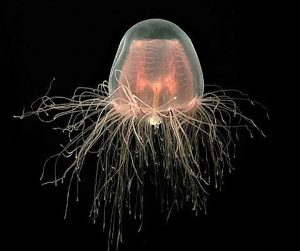
2. Greenland Shark: The Arctic Ocean is home to the deep-water Greenland shark, a member of the somnios family. The sharks can grow to about 0.5 to 1 cm annually, attain lengths of up to 24 feet, live in water, and are the only sharks that can tolerate year-round Arctic temperatures of -7 to -2 degrees. Given that most sharks are thermophilic, this is really odd. A Greenland shark (Somniosus microcephalus) has a minimum life span of 272 years, with a maximum reported age of 392 years, per a study that utilised eye lens radiocarbon testing. According to the study’s authors, the Greenland shark is likely the longest-living animal known to man.
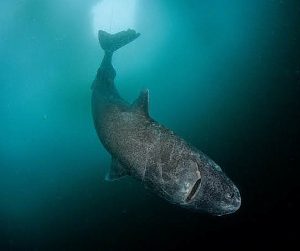
Per the IUCN reports, this shark is nearly extinct, owing mostly to overfishing. The Greenland shark lives in the waters of the Arctic and North Atlantic at depths ranging from 4,000 to more than 7,000 feet. The creature eats any living thing; it has no preferences for certain foods. It forages for food and consumes various fish and birds.
Recommended: Most Difficult Exams in the World
3. Antarctic Sponges: These creatures can thank their environment for their lengthy lifespan: these sponges, which number more than 300, survive at depths ranging from 325 to 6,500 feet in freezing temperatures. Their development rate and other biological processes are slowed by this harsh environment, giving them remarkable longevity.
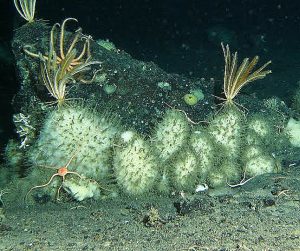
One species of Antarctic sponge, Anoxycalyx joubini, was estimated to have a potential lifespan of 15,000 years in a 2002 research. The Cinachyra antarctica, which does not dwell as deeply underwater as the Anoxycalyx joubini, was found to have a lifespan of up to 1,550 years, according to the same study.
4. Giant Galapagos Tortoises: Giant Galapagos tortoises are native to the well-known Galapagos Islands archipelago and are well-known for having one of the longest lifespans on Earth, with an average lifespan of 200 years. At the Alipore Zoological Gardens in Kolkata, a male tortoise by the name of Adwaita passed away in 2006 at the age of 255. He subsisted on a diet of wheat bran, carrots, lettuce, soaked gramme (chickpea), bread, grass, and salt.
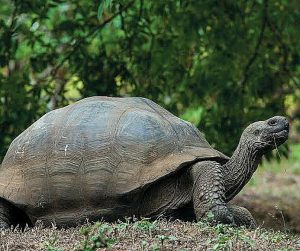
This male tortoise of the Algebra species, weighing up to 250 kg, is reported to have been given to Lord Clive, the founder of the British Empire in India. These tortoises can live up to 150–250 years on average.
Recommended: Most Technology Advanced Countries In Africa
5. Lamellibrachia Tube Worm: Tube worms (Lamellibrachia luymesi), which are brightly coloured creatures of the deep water, have been recorded to live for 170 to 250 years. They are found on the ocean floor around hydrocarbon cold seep vents.
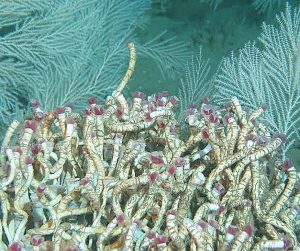
The Lamellibrachia is distinct from other vent creatures in that it grows slowly over the course of its life to a length of six or more feet. It can be found all over the Atlantic Ocean but is most common in the shallow Gulf of Mexico basin.
6. Tuatara: Tuatara are the sole remaining members of the order Sphenodontia, one which flourished some 200 million years ago. These lizard-like reptiles are among the longest-lived vertebrates on Earth, with some living for more than 100 years. They are regarded as living fossils.
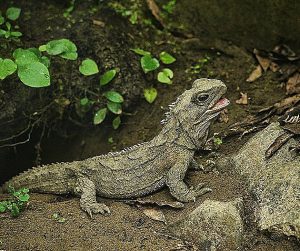
Only found in New Zealand, tuataras reach sexual maturity after 10 to 20 years and keep growing until they are 35 to 40 years old.
Recommended: How To Become a Successful Entrepreneur
7. Red Sea Urchin: The lifespan of the red sea urchin, Strongylocentrotus franciscanus, ranges from 100 to more than 200 years. The red sea urchin is only found in the Pacific Ocean, mostly off the northern and western coasts of Japan and the United States.
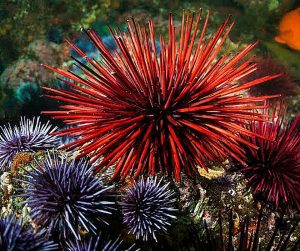
It dwells in shallow, occasionally rocky waters. It stays mostly from the low-tide line down to 300 feet, avoiding locations that are particularly wavey. It uses its spines as stilts as it crawls across the ocean floor.
8. Bow Head Whale: The bowhead whale, commonly known as the Arctic whale, holds the record for having the longest lifespan of any mammal on earth. While the oldest one is 211 years old, many of them are thought to be older than 200 years.
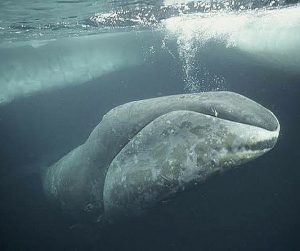
A gene called ERCC1 that continuously repairs the body’s damaged DNA is present in bowhead whales. As a result, these fish are unaffected by dreadful illnesses like cancer, neurological, cardiovascular, or metabolic diseases. They can grow up to 60 feet (18.3 m) and 200,000 pounds (91 tonnes) and consume about 220,000 pounds (100 tonnes) of food each year.
Recommended: Countries with highest unemployment rate in the world
9. Koi Fish: Koi (Cyprinus rubrofuscus) are a domesticated ornamental variant of the common carp. Despite the fact that the oldest known koi lived to be almost 200 years old, their average lifespan spans about 40 and 50 years.
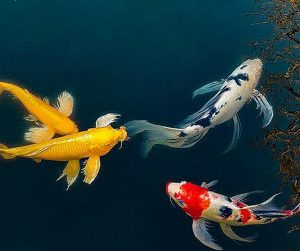
Although this subspecies of common carp originated in China, it is quite popular in Japan given that it is intensively grown there. One well-known centenarian was given the name Hanako by the Japanese. Initially eaten, koi carps were eventually kept as ornamental fish at home.
10. Asian Elephant: The Asian nations of India, Pakistan, Laos, Nepal, and Thailand are home to these elephants. Among elephants, this mammal is the second-largest. The animal can grow to a height of 3.5 metres and a weight of 5 tonnes.
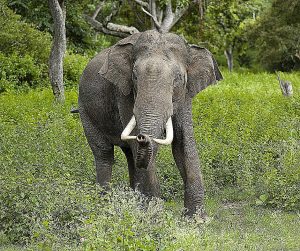
Adult Indian elephants have no natural enemies other than humans who have traditionally utilised them as a labour force. While domesticated animals in a suitable environment can live up to 80 years, in the wild, these elephants live for 60 to 70 years.
Recommended: Hardest Musical Instruments To Play and Learn
11. Macaws: Macaws are members of the parrot family and can be identified by their brilliantly coloured feathers. They have a lengthy lifespan and can live for 60 to 80 years under the appropriate conditions.

They thrive in rainforests and eat a variety of nuts and seeds. However, because of habitat destruction and the illicit pet trade, the majority of these lovely birds are endangered in the wild, and some of them have already gone extinct.
Recommended: Advantages and Disadvantages of Bicameral Legislature
Conclusion
The attributes needed to delay, and occasionally even stop or reverse, ageing may be found in animals that live the longest. Whilst 150 years may be the “absolute limit” for humans, this is still a mere blink of an eye when compared to the centuries and millennia that certain animal species live through.

Edeh Samuel Chukwuemeka, ACMC, is a lawyer and a certified mediator/conciliator in Nigeria. He is also a developer with knowledge in various programming languages. Samuel is determined to leverage his skills in technology, SEO, and legal practice to revolutionize the legal profession worldwide by creating web and mobile applications that simplify legal research. Sam is also passionate about educating and providing valuable information to people.